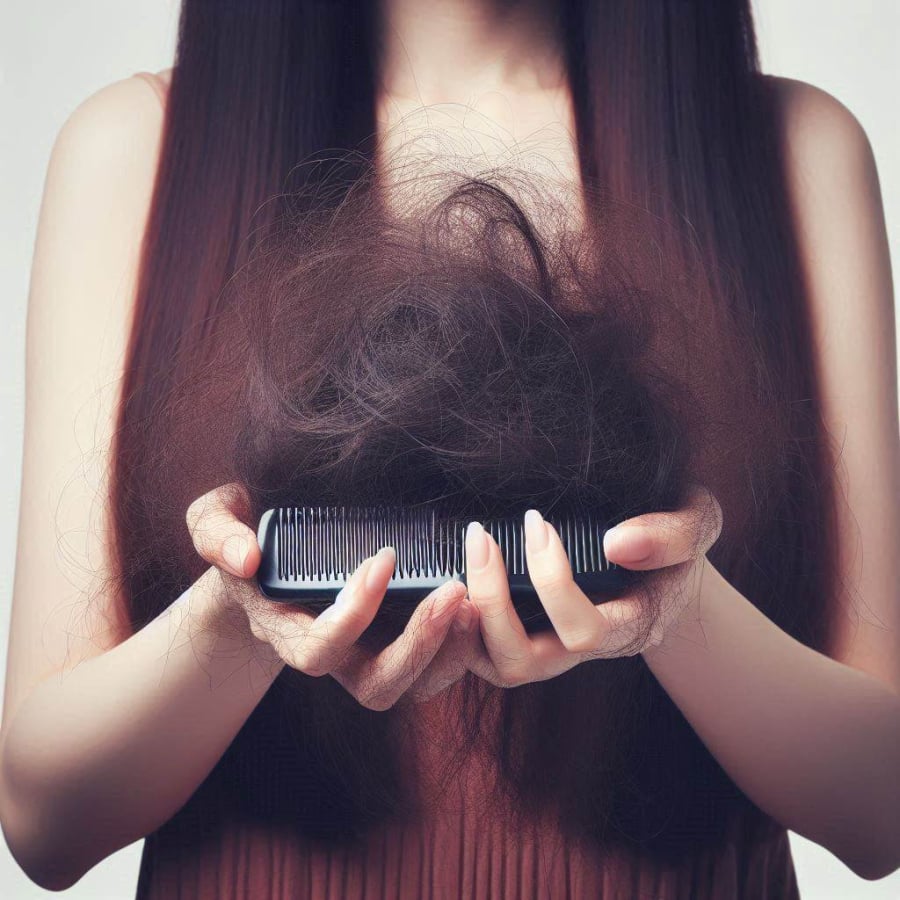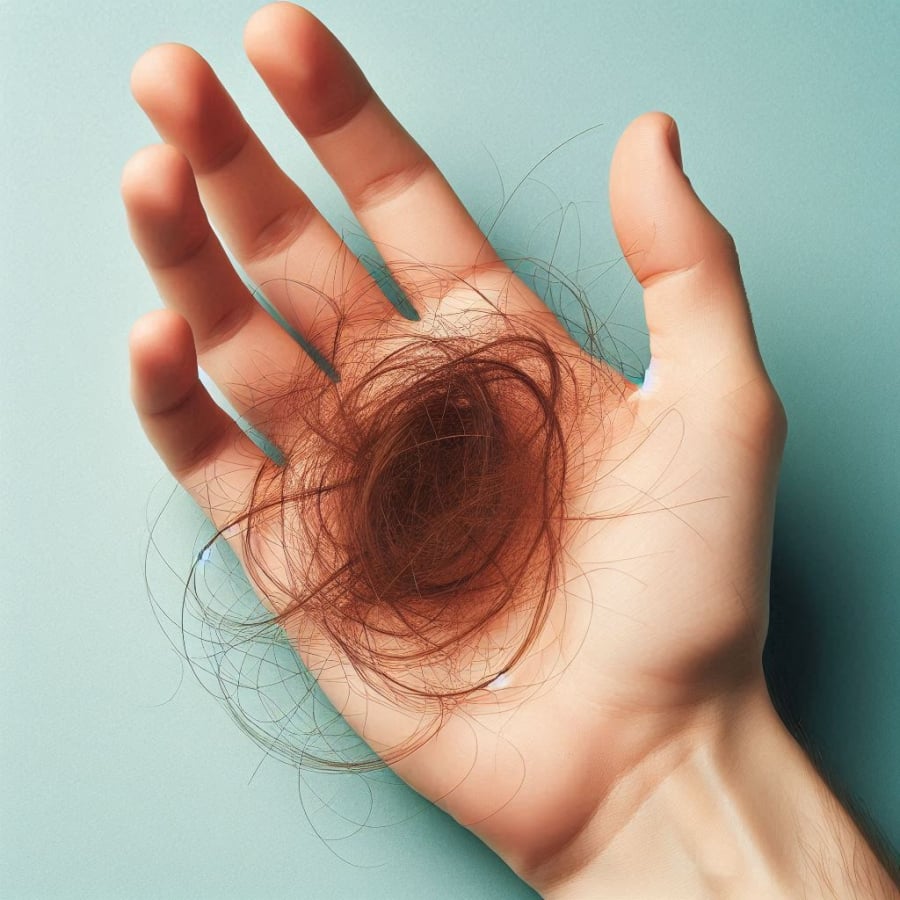Hair Loss: Causes and Solutions
Hair loss is a common occurrence, especially during seasonal changes. Many people worry when they notice increased hair shedding.
The timing of hair loss can vary from person to person and is influenced by multiple factors, including:
Hair Growth Cycle
Each hair strand goes through three phases: growth, rest, and shedding. When a significant number of hairs enter the shedding phase simultaneously, we experience increased hair fall.
Environmental Factors
Fluctuating weather, humidity, and sun exposure can negatively affect hair health, leading to hair loss.

Fluctuating weather conditions can impact hair health, contributing to hair loss.
Nutrition
Deficiencies in essential vitamins and minerals, such as iron, zinc, and biotin, can also play a role in hair loss.
Stress
Prolonged stress disrupts hormones, affecting the hair growth cycle and resulting in hair shedding.
Medical Conditions
Certain health issues like thyroid disorders, psoriasis, and systemic lupus erythematosus can contribute to hair loss.
Distinguishing Between Seasonal and Medical Hair Loss
During seasonal transitions, especially late autumn to early winter or late spring to early summer, hair loss tends to increase. This can be attributed to abrupt weather changes, which cause scalp dryness and hair brittleness. Additionally, shifting weather patterns can weaken the immune system, impacting hair health.
Seasonal hair loss typically improves as the body adjusts to the new conditions. However, if hair loss persists, it may indicate underlying health issues.

Seasonal hair loss usually subsides as the body acclimates to the new environment.
Hormonal Imbalance
Fluctuations in hormones, particularly androgens, can lead to hair loss. This is commonly seen in postpartum and menopausal women, as well as middle-aged men.
Chronic Stress
Stress from work, life, and relationships can increase cortisol levels, disrupting the hair growth cycle.
Poor Diet
Deficiencies in vitamins and minerals such as iron, zinc, and biotin can weaken hair, making it more prone to fall out.
Medical Conditions
Diseases like thyroid disorders, lupus, and anemia can also contribute to hair loss.
Medication Side Effects
Certain medications, including cancer treatments and antidepressants, may cause hair loss.
Chemical Exposure
Excessive use of chemicals for hair perming or dyeing can damage hair follicles.
Genetics
Genetics play a significant role in determining hair density and susceptibility to hair loss.
Signs of Abnormal Hair Loss
The first sign of abnormal hair loss is often increased shedding during washing, brushing, or even sleeping. Hair may appear thinner, exposing the scalp, and in some cases, bald patches develop, affecting one’s appearance and confidence. Additionally, the overall quality of the hair deteriorates, becoming dry, brittle, and lacking luster.

Abnormal hair loss may manifest as increased hair shedding during daily activities or even sleep.
Addressing Hair Loss
To mitigate hair loss, consider the following measures:
– Use gentle, natural shampoos to avoid scalp irritation.
– Minimize the use of harsh chemicals such as hair dyes or perms.
– Gently massage your scalp to promote blood circulation.
– If hair loss is due to an underlying medical condition, focus on treating the root cause.
– Ensure adequate intake of vitamins and minerals essential for hair health through a diet rich in green vegetables, fruits, and nuts.
– Engage in regular exercise, maintain a healthy sleep schedule, and indulge in enjoyable activities to manage stress.
– If hair loss persists without improvement, consult a healthcare professional for timely diagnosis and treatment.






























